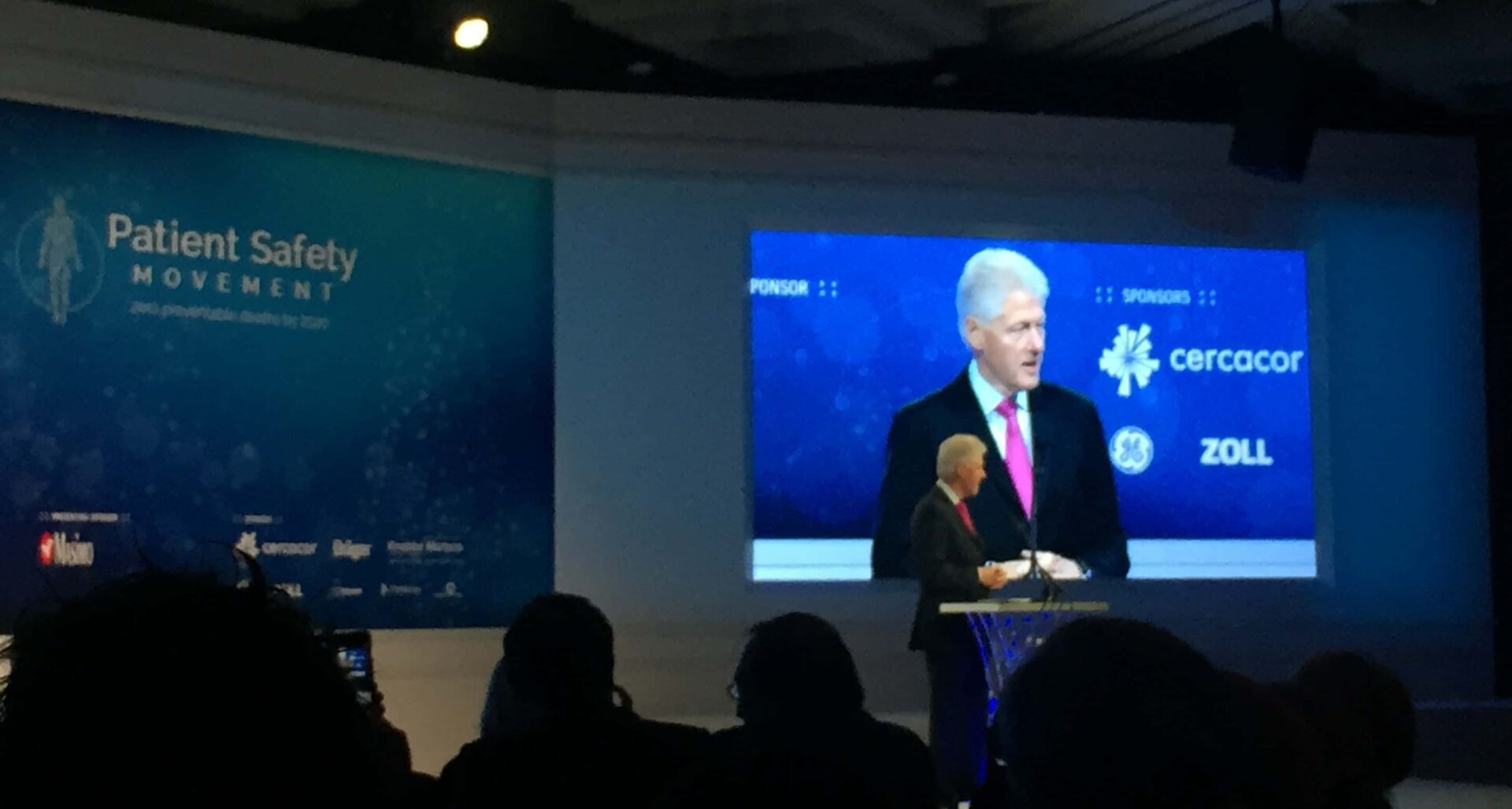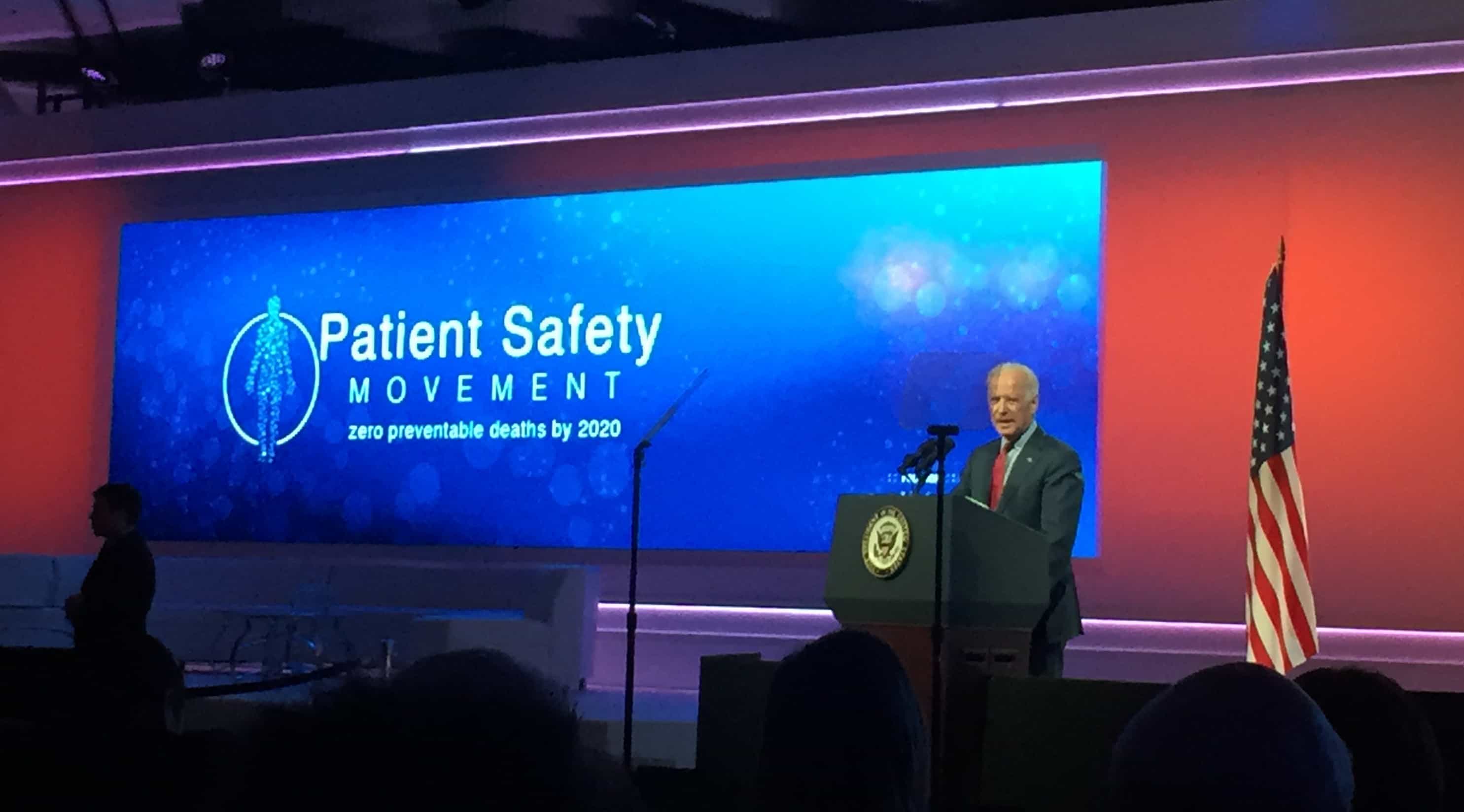Healthcare has become very politicized in the U.S. (and in Canada and other countries). I think the patient safety crisis (and trying to solve it) is something that should be a non-partisan issue. Neither party wants patients to die from preventable medical errors and nobody has a vested political interest in defending the status quo. It's more like both parties mostly ignore the problem, even though the full formal name of what's often called “ObamaCare” is the “Patient Protection and Affordable Care Act.”
How many die each year? It's a large number that's somewhat unknowable, at least with any precision. There are estimates that say up to 440,000 patients die each year from preventable errors in the U.S.
To show how the patient safety crisis (or the “patient harm crisis”) is mostly ignored, the law gets called the “ACA” as shorthand, focusing on cost, not safety. Why not call it the PPACA? That's a mouthful, I guess. But I think there needs to be more focus and attention paid to safety. Providing greater access to an unsafe healthcare system… we need to do better than that.
I recently attended the “Patient Safety, Science & Technology Summit” in California (see tweets about it). The instigator of the non-profit “Patient Safety Movement” is Joe Kiani, CEO of Masimo, a company that makes pulse oximeter devices. Here's an article about him and his push for patient safety (with a reference to Paul O'Neill, a former instigator of this): “Can Business Savvy, Clout And Charisma Supercharge Patient Safety?“
Kiani is politically well connected and attracted many leaders to lend their support to the patient safety fight, including:
- President Bill Clinton
- Vice President Joe Biden
- Senator Amy Klobuchar (D-MN)
- Rep. Dana Rohrabacher (R-CA)
- Rep. Erik Paulsen (R-MN)
Democrats and Republicans can come together and find common ground to help solve this problem. Or, at the least, they can talk about it and bring attention to this issue.
Former President Bill Clinton

President Clinton spoke on the first day, as you can read about in this news story:
Bill Clinton praises patient safety efforts of Irvine-based partnership
The conference also posted two videos of Clinton's prepared remarks and a Q&A with Kiani:
He played the role of cheerleader, mostly. He acknowledged the problem with patient harm and deaths due to preventable medical errors, congratulated attendees on some of their successes, and encouraged people to do more.
Clinton said “the culture of healthcare must change” and that, to affect change, it helps to “get all the reluctant people in the room together” as a first step. “Networks of creative cooperating individuals can solve complex problems such as preventable hospital deaths.”
He added, “Nobody goes into healthcare wanting people to die…a lot of people don't think things can be different.”
From the article:
“Clinton called for patient empowerment so they can ask the right questions and get the information they need to make good health care decisions. He also said hospitals should be more transparent, giving as an example Pennsylvania, which was the first state to have hospitals publish lists of procedures and what they cost.
“This information is really helpful,” he said. “There is no point in hiding facts because, if we don't know, how are we going to fix it?”
I'd argue that quality and safety data needs to be more transparent too, so we can make informed choices based on value — quality AND cost.
Some of my notes:
“I love this movement,” Clinton said. Nobody knows exactly how many lives are lost, dying unnecessarily from preventable complications (it's somewhere between 200,000 and 400,000). “You're doing something about this.”
He says the goal of “zero preventable deaths by 2020” is harder than sending man to the moon… “I think it's achievable” because of the network of creative cooperation that has been formed.
My comment — it's really hard to know how many lives are lost from preventable medical errors and it's REALLY hard to know how many lives are saved through these efforts. This Summit says they've saved 6,000 lives over the past few years, but that's hard to know.
“People are dying to be asked to make a difference,” said Clinton.
Looking at different initiatives through the first 10 years of the Clinton Global Initiative, they learned “more from the 6% who tried and failed” than they did from the others. Commitments that came from partnerships of diverse groups and organizations had a higher success rate than those led by a single group.
Clinton referred to the ACA as “that bill.” Hmmm.
He says infections are going to go down because “it's not that's complicated” and people are going to start doing what they need to do.
“When you laugh, it makes space for you to think. When you're mad, you can't think to save your life.”
Kiani: Things the government can do to help patient safety: 1) transparency of hospital harm data (show what's causing harm and why), 2) aligned incentives (not reimbursing for poor quality).
Clinton: “If you're not transparent, people think you're hiding something really bad.” He cited Pennsylvania being the first to report errors and costs. There's no connection between cost and result — it's about volume, the more you do, the better you get at it. “There's no point hiding the facts.”
“We can all make money doing the right things.”
President Clinton appearing certainly brought a lot of media coverage to what might otherwise be a pretty wonky event… as did the attendance of a sitting VP (whose remarks were more focused on patient safety than Clinton's were):
Vice President Joe Biden

Vice President Joe Biden spoke on the second day of the event, meaning we had to go through metal detectors and face more stringent Secret Service protocols than we did for Clinton.
I have apologize for being a bit grumbly about Biden being 45 minutes late for his talk. They left us all sitting there just waiting, without any explanation.
After his introduction, Biden charmed the audience by saying, “I'm the late Joe Biden” and attributed his lateness to being on the phone dealing with the crisis in Ukraine.
Here's video and a news story about the talk: Joe Biden to doctors: ‘You've changed the mindset'
I also have it in audio format if you'd like to just listen or if YouTube is blocked for you:
I was impressed with Biden's command of the patient safety issue. I found it interesting that, while he referred to ways the Affordable Care Act is helping improve quality, he still referred to the law as the “ACA” instead of the “Patient Protection and Affordable Care Act.”
Here are some of my notes, quoting or paraphrasing his remarks:
Kiani said that Biden practically fell out of his chair when he learned about this issue and then brought experts in for a 2-hour meeting… said he would do whatever he can to eliminate preventable deaths.
Biden says invited himself a long time ago and it finally worked out (this year, the third year of the event).
“You've been breaking down silos… so much gets lost in lack of communication (even in government).”
The “most profound thing you've done is change the vocabulary and mindset – preventable death.” In the past, this wasn't a major focus in practicing medicine… presumption was that something as devastating as sepsis was basically a cost of doing business. “It's not like you're trying to find a cure for brain cancer“… “zero preventable deaths is within our grasp. The president and I are in the game with you. I really mean that. We're trying to change the paradigm.” We no longer have automatic payments from CMS when it's not related to success rates.
We need “not just performance standards, there must be demonstrable safety improvements.” “I'm here to join the conversation… how the administration looks at this new paradigm and invite your constructive criticism about what we're doing or not doing.”
The healthcare system “hasn't properly linked quality and safety, keeping bad things from happening that we can keep from happening.”
I have an overwhelmingly keen interest in this. It gets down to systems.
He recognizes the incredible pressure placed on medical professionals… there never seems to be enough time. What he hears from nurses – never complaints about not enough pay, but about their FEAR. They have too many patients. Too many rooms. Afraid they're going to make a mistake.
“Things are changing, mistakes are being eliminated… Old dogs can learn new tricks.” “These transitions are hard… if they've been doing things a certain way for 30-40 years.”
“Patients have a right to error free healthcare”
“It's important to have an advocate in the hospital.” That's why most of you invite a person in with the patient.
Mark's note: If you're going to be a patient advocate (or a patient), I highly recommend the “Batz Guide for Bedside Advocacy” produced by the Louise H. Batz Patient Safety Foundation, for whom I am a board member (further disclosure: they paid for my travel expenses to this summit).
More from Biden:
“People have to be empowered to speak up without being seen as a troublemaker.”
“We should end the debate about whether quality care is a necessity.”
Now the question remains… what can our political leaders do other than talk about the problem? Are elected officials in your country speaking up about this problem of patient harm and preventable medical errors?
Please scroll down (or click) to post a comment. Connect with me on LinkedIn.
Let’s build a culture of continuous improvement and psychological safety—together. If you're a leader aiming for lasting change (not just more projects), I help organizations:
- Engage people at all levels in sustainable improvement
- Shift from fear of mistakes to learning from them
- Apply Lean thinking in practical, people-centered ways
Interested in coaching or a keynote talk? Let’s talk.
Join me for a Lean Healthcare Accelerator Trip to Japan! Learn More










Hi Mark
Never have seen politicians argue about the need to improve safety in any area. The real problem is that none of them want to actually commit to any type of action to get something done. Agreeing there is a need is still along way from addressing the need, much less paying for the work to get anything done. It is taking action politicians suck at, regardless of political association, or the country they are from.
Hi Robert-
I agree that ACTION matters. I think the government can play some role in setting standards and maybe pushing things on payment reform, but the heavy lifting and hard work must be done by the hospitals and their leaders.
I think awareness of the issue is the first step… then talking about it… then hopefully taking action or inspiring action is next. We have to start somewhere.
I hope that prominent voices like Clinton and Biden can help wake up the public about the severity of the patient safety crisis… and that people can demand change (or at least demand some data and transparency about quality and safety).
Mark
[…] attended last year and wrote a post titled “Politicians and Patient Safety: Bill Clinton, Joe Biden, and More” that included video of Clinton and Biden. I also saw a talk by Dr. Erin DuPree, from […]
Comments are closed.